Love Language Red Flags: When They Become Manipulative or Controlling
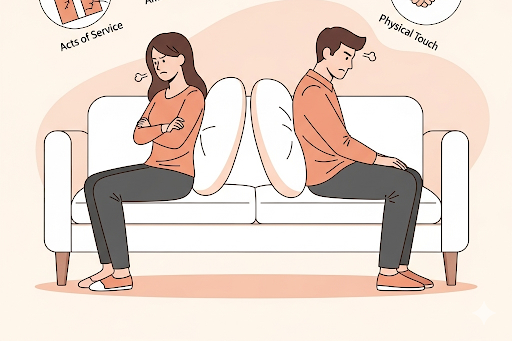
Love Language Red Flags (2025)
Love languages are designed to help couples, friends, and families connect more deeply. At their best, they’re a tool for empathy — a way of saying, “I see you and want to love you in the way that matters most.”
But like any tool, love languages can be misused. In unhealthy relationships, they sometimes become weapons of control, guilt, or manipulation. Instead of strengthening connection, they create pressure, resentment, and even emotional harm.
This guide highlights the red flags to watch out for, with examples of how love languages can be twisted in unhealthy ways — and how to protect yourself if it happens.
Healthy vs. Unhealthy Use of Love Languages
- Healthy use: “I know acts of service make you feel loved, so I’ll do my best to help with small things.”
- Unhealthy use: “If you loved me, you’d do this for me — you owe me.”
The difference is intention. One builds connection, the other demands compliance.
Red Flags by Love Language
Each love language has healthy expressions — but also unhealthy extremes that can become manipulative.
Words of Affirmation
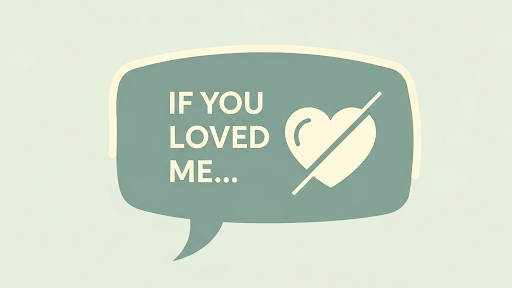
- Healthy: “I’m proud of you. You worked so hard on that project.”
- Unhealthy: “If you loved me, you’d compliment me more.”
- Red flag signs:
- Guilt trips for not praising enough.
- Using affirmation as a demand instead of genuine expression.
- Criticism disguised as “helpful feedback.”
Quality Time

- Healthy: “Let’s plan a date night where we can focus on each other.”
- Unhealthy: “Cancel your plans with friends if you really care about me.”
- Red flag signs:
- Isolating you from friends or family.
- Making you feel guilty for wanting personal time.
- Treating time together as obligation, not choice.
Acts of Service
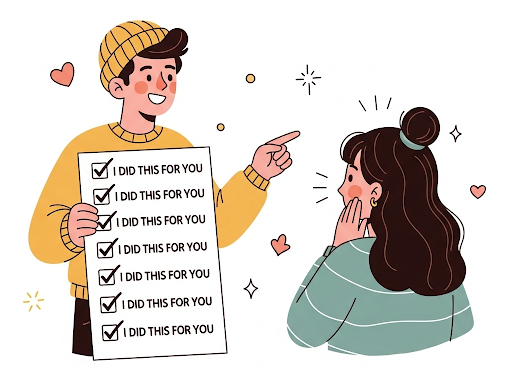
- Healthy: “I noticed you were stressed, so I made dinner tonight.”
- Unhealthy: “I do everything for you, so you owe me.”
- Red flag signs:
- Turning help into leverage.
- Using tasks to create dependency.
- Expecting repayment for every gesture.
Receiving Gifts
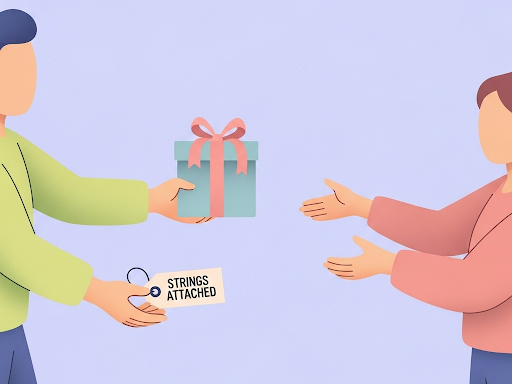
- Healthy: “I saw this and thought of you — hope it makes you smile.”
- Unhealthy: “I bought this, now you owe me something in return.”
- Red flag signs:
- Transactional expectations (“I gave you X, so you must give me Y”).
- Gifts used to mask bad behavior.
- Financial control disguised as generosity.
Physical Touch
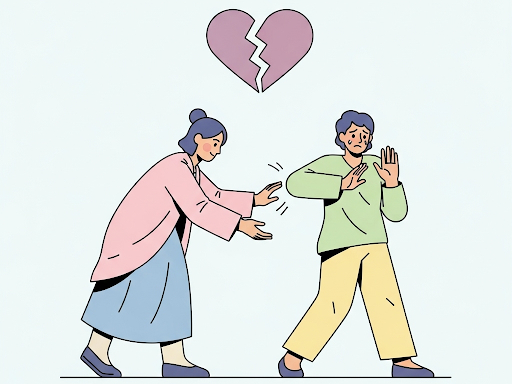
- Healthy: “Can I give you a hug?” (with consent)
- Unhealthy: “Prove you love me by being physical.”
- Red flag signs:
- Pressuring for sex under the guise of a “love language.”
- Ignoring or dismissing boundaries.
- Withdrawing affection as punishment.
See WOMANKIND’s resource on recognizing unhealthy expressions for more examples.
The “Weaponization” of Love Languages
Relationship experts note that love languages sometimes get twisted into control mechanisms:
- Proof of Love Demands: “If you loved me, you’d…” becomes the go-to phrase.
- Guilt & Obligation: Partners frame unmet needs as failures, not differences.
- Transactional Thinking: Love is turned into a scorecard instead of a choice.
According to Psychology Today, this mindset can erode trust, creating a cycle where partners no longer feel safe expressing real needs.
Signs Your Partner Is Misusing Love Languages
- You feel pressured instead of appreciated.
- Affection feels like a test, not a gift.
- Love is withheld as punishment.
- You feel guilty more often than grateful.
- The language is used to control your choices, not support them.
If these signs feel familiar, the issue isn’t love languages — it’s manipulation.
How to Respond When Love Languages Are Misused
1. Set Clear Boundaries
Example: “I love physical touch, but I need you to respect my comfort level. It doesn’t mean I don’t care about you.”
2. Reframe the Conversation
Bring the focus back to connection, not obligation:
“Love languages are about showing love freely, not proving it. I want us both to feel safe and appreciated.”
3. Watch for Patterns
Everyone slips up sometimes. The real red flag is consistent misuse that makes you feel trapped, guilty, or controlled.
4. Seek Outside Support
If conversations don’t help, reach out to a trusted friend, counselor, or support line. Misuse of love languages can overlap with emotional abuse.
When It’s Time to Walk Away
If love languages are consistently twisted into manipulation, it may be a sign of deeper incompatibility or toxicity. Healthy love doesn’t require guilt or coercion.
Walking away isn’t failure — it’s protection. Your worth isn’t defined by meeting someone else’s demands.
FAQs About Love Languages and Manipulation
Can love languages be toxic?
Not inherently. The problem arises when they’re used to control instead of connect.
What’s the difference between a request and manipulation?
Requests respect boundaries and offer choice. Manipulation uses guilt, pressure, or punishment to force compliance.
What if my partner says, “That’s just my love language”?
Love languages are not excuses for ignoring boundaries. Respect must come first.
Final Thoughts
Love languages are meant to build bridges, not walls. They can be powerful tools for connection — but only when used with respect, consent, and care.
The red flags to watch for are guilt, pressure, isolation, and control. If love languages are being used against you, it’s not a reflection of your worth — it’s a misuse of the framework.
At their core, love languages should feel freeing, not binding. True love is never forced; it’s chosen, again and again, in healthy, safe, and supportive ways.

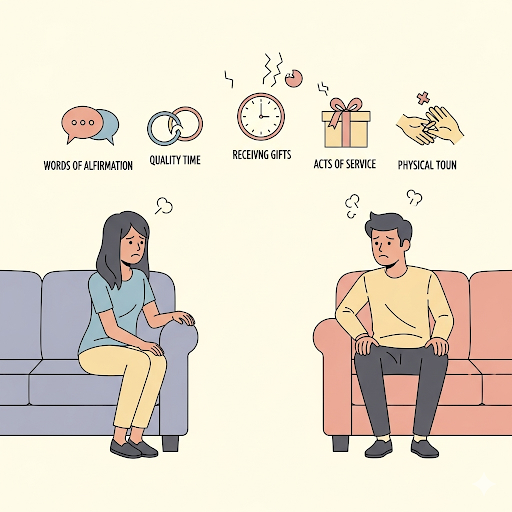
Leave a Reply